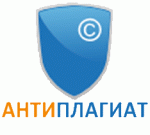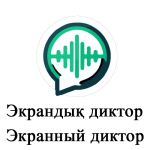-
Speciality Code:
5В011500
Speciality Name:
Basics of law and economics
Faculty:
Faculty of Business and Law
Field of study:
Education
- A) Goal
- The purpose of the educational program specialty 5V011500 - Basics of Law and Economics - are consistent with the mission of the university, takes into account the development of the economy, the legal basis of functioning of society and business, the labor market needs of the region with an emphasis on student center learning, teaching and assessment, and aimed at the formation of the future teachers of professional competence in the field of fundamentals of law and economics, knowledge of the principles of structuring the foundations of law and economics as subjects, skills, research and organizational and managerial activities in the education system.
- B) Feature
- 1.Discipline / scope of the subject
- Introduction to the pedagogical profession
- Pedagogy
- Ethnopedagogics
- Psychology
- Age physiology and school hygiene
- Self-knowledge
- Methods of teaching the basics of law and economics
- Theory and methods of educational work
- Management in the education
- Technologies of criterion evaluation
- Theory of the state and right
- Constitutional law of the RK
- Family law of the RK
- History of pedagogy
- Management
- Marketing
- Methods and organization of scientific research in pedagogy
- Bases of pedagogical mastery
- Inclusive education
- 2.General information/
- Specialization
- «bachelor of education»
- 3.Direction
- education
- 4.Features
- magistracy
- C) Employment and further training
- 1.Employment
- Elementary, main and profile school;
- specialized school;
- organizations of technical and professional, postsecondary education.
- 2.Further training
- Magistracy
- D) Style of education
- 1.Approaches to studying and learning
- Credit technology of education, information and communication technology training, in which are implemented the following groups of teaching methods:
- active methods;
- interactive methods;
- practice-oriented methods.
- 2.Assessment methods
- Within realization of block and rating technology of control the following groups of control methods are applied:
- oral methods of control;
- written methods of control;
- practical methods of control;
- test control methods
- Control forms:
- individual;
- group;
- collective.
- E) Program competences
- 1.Common competence
- The program conforms to requirements of the State obligatory standard of education «Higher education. Bachelor. » for ensuring quality of the academic programs at the first level of a cycle.
- It includes the common competences (also known as key skills) the expected graduates of the first cycle (look on the website http://adilet.zan.kz/rus/docs/P1200001080 ). The listed below competences represent summary and most characteristic competences for this program:
- to possess basic knowledge in the field of natural-science (social, humanitarian, economic) discipline, contributing to the formation of a highly educated personality with a broad Outlook and culture of thinking
- to own skills of acquiring new knowledge needed for the everyday professional activity and to continue education in magistracy
- to be able to analyze and understand world outlook problems from scientific positions, explore the cultural wealth, logically and reasonably right to think and it is correct to build oral and written language
- to be able to self-knowledge, a critical evaluation of its merits and disadvantages, to moral and physical self-improvement, the high motivation of their professional and civic engagement
- to be able to professional written and verbal communication in the Kazakh and Russian languages; know a foreign language at the level necessary for professional tasks
- know the socio-ethical values, based on public opinion, traditions, customs, social norms and focus on them in their professional activities
- know the basics of the legal system and legislation of Kazakhstan; to respect the rules of business ethics, to own ethical and precepts of law of behavior
- know the trends of social development; to be able guided adequately in various social situations
- to be capable to work in team, correctly defend their point of view, offer new solutions;
- to be able to find compromises, to relate their opinion with the opinion of the team: strive for professional and personal growth
- to be able to analyze socially significant problems and processes and use in practice methods of humanitarian, social and economic Sciences in various types of social and professional activities
- have the basics of economic knowledge, to have scientific knowledge about management, marketing, Finance; know and understand the goals and methods of state regulation of the economy, the role of the public sector in the economy
- 2.- to be able to bring information, ideas, problems and solutions in the field of education
- to be able to critically rethink the experience, modify if necessary, the profile of their professional activities, be aware of the social importance of their future profession, have a high motivation to implement professional activities
- to be able to generalize, analysis, information perception, goal setting and choice of ways of its achievement: can devise and sustain arguments and solve problems in the field of education
- know the classification, packaging methods and teaching technologies and be able to analyze the effectiveness of use of teaching activities
- to be ready to develop an individual trajectory of legal and economic culture
- know the methods of feasibility analysis, capable of substantiation adopted and implemented decisions in the field of education: able to apply the results in practice
- to have knowledge of the organizational structure, methods of control and regulation, performance criteria in relation to the establishment of the legal and economic foundations of human life
- to be able to master anniecanada, competence-based culture and approaches to education ( KSH and competence)
- to have knowledge, skills, competencies for effective action in education for the purposes of personal growth and development
- to be able to learning about the formal and informal economy
- to be able to analyze advanced scientific and technical experience and tendencies of development of technologies in the field of education
- to be able to perform theoretical and experimental studies for the formation of legal and economic culture
- F) Full list of results of training in this program
- In the context of professional teaching practice, in the work in the organization of education, graduates can show ability to the following:
- demonstrate knowledge of natural Sciences, socially-humanitarian and economic disciplines, promoting formation of the highly educated identity of the teacher with a broad outlook and culture of thinking;
- to apply this knowledge in professional pedagogical activity;
- formulate and practically to solve problems in the field of the right and economy, use information technology in professional activities
- collecting and interpreting information to ensure the pedagogical process, participations in planning, organization and functioning of an education system, improvement of educational technologies according to requirements of modern labor market and the employer
- report information, ideas, problems and solutions in education, as professionals, and to non-specialists.
| Degree program: Bachelor of education specialty 5В011500 ««Basics of law and economics» | |
|---|---|
| The degree and time | single degree (one University) (ECTS 279 loans / 160 кaz. loans) |
| Training institution | Karaganda economic University Kazpotrebsoyuz |
| Accreditation | Independent Kazakhstan Agency Quality Assurance Of Education (IQAA) http://nkaoko.kz/ |
| Time action | This program was approved by the University for a period of 4 years for individuals receiving degrees from the University 2016 year |
| Level | QF for ESHE (Qualification framework for the European space of the higher education): first cycle; ЕQF (European qualifications framework): level 6; NFQ (national qualifications framework): level 6 |






